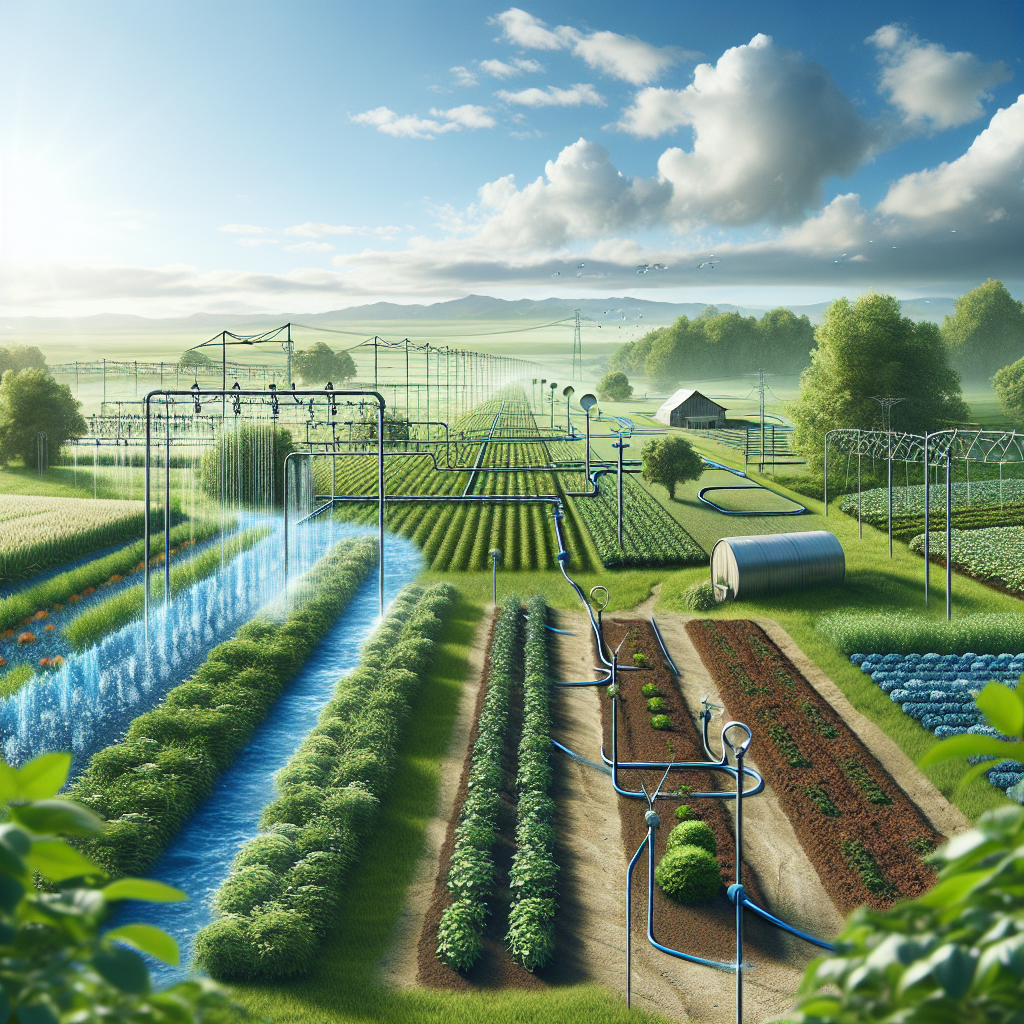Water Conservation in Agriculture: Techniques and Benefits
In the realm of agriculture, water plays a pivotal role, serving as the lifeblood for crops that feed the global population. However, with the increasing pressures of climate change, population growth, and water scarcity, the agricultural sector faces significant challenges in managing this vital resource. Water conservation in agriculture is not merely a choice but a necessity to ensure sustainable food production and environmental stewardship. This article delves into the various techniques of water conservation in agriculture and outlines their benefits, followed by a FAQs section to address common inquiries.
Techniques for Water Conservation in Agriculture
1. Drip Irrigation
Drip irrigation is a highly efficient method that delivers water directly to the roots of plants, minimizing evaporation and runoff. This system uses a network of valves, pipes, and emitters to provide precise water quantities. By targeting water delivery, plants receive optimal hydration, reducing waste.
2. Rainwater Harvesting
Capturing and storing rainwater for agricultural use is an ancient practice that remains relevant today. Rainwater harvesting systems can range from simple barrels to more elaborate structures with tanks and pumps. Utilizing rainwater reduces reliance on groundwater and surface water sources, promoting sustainability.
3. Soil Moisture Conservation
Practices such as mulching, cover cropping, and reduced tillage help in retaining soil moisture. Mulching involves covering the soil around plants with organic materials or plastic to prevent moisture evaporation. Cover crops and reduced tillage improve soil structure, enhancing its capacity to hold water.
4. Irrigation Scheduling
Timing irrigation based on the actual water needs of crops can significantly reduce water usage. Modern technologies, including soil moisture sensors and weather forecasting models, assist farmers in deciding the optimal time to irrigate, ensuring water is used efficiently.
5. Water Recycling and Reuse
In agriculture, water recycling involves capturing runoff or drainage water and treating it for reuse. This technique not only conserves water but also prevents pollutants from entering water bodies.
Benefits of Water Conservation in Agriculture
1. Sustainability
Water conservation practices ensure the long-term viability of water resources, essential for future generations. Sustainable water management in agriculture helps in maintaining the balance between human needs and environmental preservation.
2. Reduced Costs
Efficient water use can lead to significant cost savings for farmers. Practices such as drip irrigation and irrigation scheduling reduce the volume of water needed, lowering water bills and the energy costs associated with water pumping.
3. Improved Crop Yields
Proper water management can lead to healthier plants and improved yields. Techniques like drip irrigation provide consistent moisture, which is crucial for plant growth. Additionally, these practices reduce water stress and disease prevalence in crops.
4. Environmental Protection
Conserving water in agriculture minimizes the extraction from rivers, lakes, and aquifers, protecting these ecosystems. It also reduces runoff, which can carry fertilizers and pesticides into water bodies, harming aquatic life.
5. Enhanced Soil Health
Practices that conserve soil moisture, such as cover cropping and reduced tillage, also contribute to improved soil health. Healthy soil supports a diverse ecosystem of microorganisms, which is beneficial for crop growth and resilience.
FAQs
Q: How can farmers implement water conservation techniques with limited resources?
A: Many water conservation techniques, such as rainwater harvesting and mulching, require minimal investment and can be implemented with local materials. Government programs and agricultural extension services often offer support for adopting more advanced technologies like drip irrigation.
Q: Is water conservation in agriculture only necessary in dry regions?
A: While water conservation is critical in arid and semi-arid regions, it is also important in areas with abundant water. Efficient water use helps in reducing the strain on local water sources and ensures water availability during dry spells or droughts.
Q: Can water conservation impact the quality of agricultural products?
A: Yes, in a positive way. Efficient water use can lead to healthier crops and potentially higher-quality agricultural products. For instance, controlled irrigation can reduce waterlogging stress, leading to better crop quality.
Q: How does water conservation contribute to climate change mitigation?
A: Water conservation reduces the energy used for pumping, treating, and distributing water, which in turn lowers greenhouse gas emissions. Additionally, practices like cover cropping enhance soil carbon sequestration, contributing to climate change mitigation.
Q: Are there any challenges to adopting water conservation techniques in agriculture?
A: Challenges include the initial cost of setting up systems, the need for technical knowledge, and potential resistance to changing traditional farming practices. However, the long-term benefits of water conservation often outweigh these challenges.
In conclusion, water conservation in agriculture is a multifaceted approach that encompasses a variety of techniques, each contributing to the sustainable management of this precious resource. By adopting efficient irrigation methods, practicing soil moisture conservation, and utilizing technologies for water recycling and reuse, farmers can significantly reduce water usage while ensuring crop productivity. These practices not only benefit the agricultural sector by enhancing crop yields and reducing costs but also contribute to environmental protection and the sustainability of water resources for future generations. As the global population continues to rise and the challenges of water scarcity become more pronounced, the importance of water conservation in agriculture cannot be overstated. Through collective action and the implementation of effective water management strategies, we can secure a sustainable future for both agriculture and the planet.

